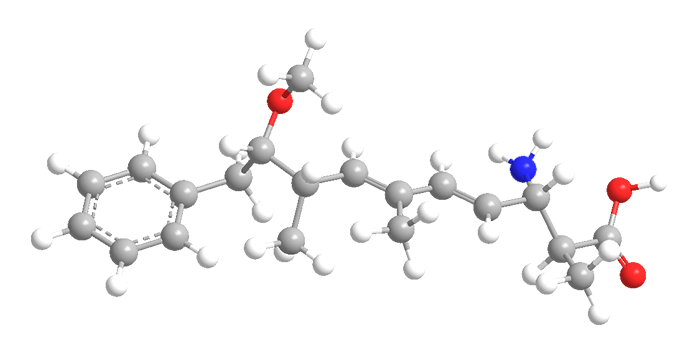

ADDA—the abbreviation for (all-S,all-E)-3-amino-9-methoxy-2,6,8-trimethyl-10-phenyldeca-4,6-dienoic acid—is an unusual, but natural, amino acid. It is one of three amino acids (the others are leucine and arginine) found in microcystin-LR, one of several extremely toxic compounds produced by cyanobacteria.
Microcystin-LR was in the news this past summer because it is the most toxic of three microcystins detected in Toledo (OH)’s drinking water supply. This finding caused authorities to ban drinking the water for 3 days while the water treatment plant took measures to remove the toxins from the water. One of the remedies, chlorination, oxidizes the ADDA double bonds and initiates the chemical breakdown of the microcystins.

Learn more about this molecule from CAS, the most authoritative and comprehensive source for chemical information.
Molecule of the Week needs your suggestions!
If your favorite molecule is not in our archive, please send us a message. The molecule can be notable for its current or historical importance or for any quirky reason. Thank you!
Stay Ahead of the Chemistry Curve
Learn how ACS can help you stay ahead in the world of chemistry.

